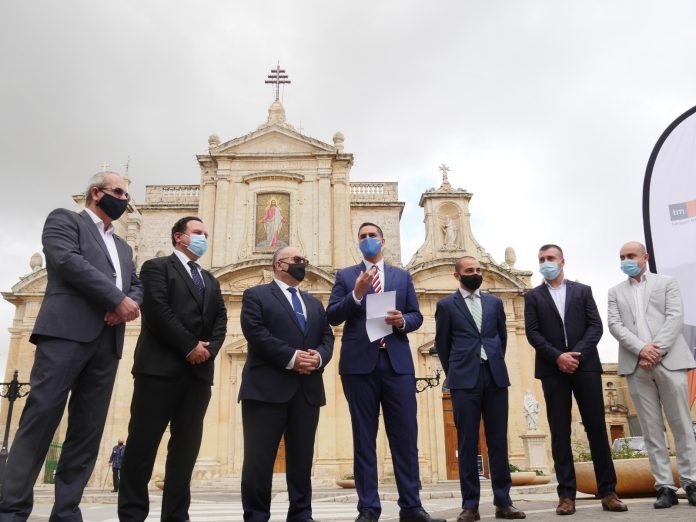Minister for Transport, Infrastructure and Capital Projects Ian Borg welcomed the official representatives of the local councils of Rabat and Mdina, Ta’ Xbiex, Senglea and Mtarfa at an event where the winning projects for permanent sustainable mobility measures presented by each respective local council were announced.
This year’s theme was ‘Zero-emission mobility for all’, one which ties with the European Green Deal’s ambitious goal of reducing 90% of all emissions caused by transport by 2050.
Minister Ian Borg explained the importance of these initiatives in order to experience a natural shift towards more sustainable transport and further induce in our children and the youth, the philosophy of giving importance to the environment, as well as the shift towards the increased use of clean transport for greener air and less emissions.
Transport Malta increased its initial budget due to the increased number of local councils that participated this year. In total, there were 17 applications submitted by 15 local councils and one Regional Committee. The total in funds increased to €130,000. Initially, the available grant was only for first and second place, however due to the Covid-19 situation, the local councils that participated in the European Mobility Week Small Events and Activities Competition did not receive the entirety of the grants which were originally to be awarded to them, since a number of events could not be held for public safety and health reasons. Therefore, Transport Malta was left with a substantial amount of funds which had been allocated to the European Mobility Week and has decided to also distribute funds as 3rd and 4th place prizes.
1st place, with a prize of €50,000, was awarded to the consortium Rabat and Mdina. Following, in 2nd place, a prize of €30,000 was awarded to the local council of Ta’ Xbiex, and in the 3rd and 4th place, with a prize of €25,000, were awarded to the local councils of Senglea and Mtarfa respectively.
In the case of Rabat and Mdina, Minister Borg explained how an investment to buy three electric cars was proposed, which could easily be driven on the narrow roads of Rabat and Mdina. The main aim is to reduce emissions and traffic jams. Apart from that, the local council identified certain areas deemed best for charging point installations, so as to facilitate the use of these vehicles further.
In both the cases of the Rabat and Mdina local council, as well as the Ta’ Xbiex and Senglea local council, which proposed buying an electric van, it was thought that the carpooling concept would also be implemented. Furthermore, it was proposed that these electric vehicles would serve as an effective transport system for the elderly and those with mobility impairment. In the case of Senglea’s local council, a budget was also established in order to buy electric scooters to be used by tourists and local residents and further promote alternate modes of transport.
The minister praised each and every one of these ideas and proposals and claimed that all these ideas are promoting the necessary modal shift needed in order for the transport sector to keep improving.
“Intermodality and the use of alternate modes of transport which create less congestion are two crucial and essential traits which lead to further progress and growth in this sector, which is pivotal for our society. Even though we are not discussing projects that cost millions, these are still very relevant in terms of creating a difference in their respective localities and further complement this government’s vision, with a holistic plan to promote intermodality and alternate modes of transport on a national level as well as its continuous work ethic to provide the best possible quality of life to its people in terms of sustainable environment and greener air”, said Minister Ian Borg.
In conclusion, the minister expressed his thanks to all participants and further urged all local councils to push forward these incentives which will ultimate elicit the leap forward and the improvement in our localities.










